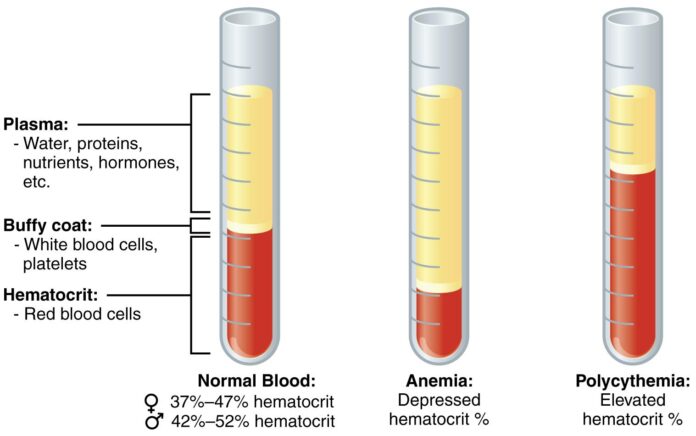
Recognizing the Signs of Low Blood Count: Symptoms You Shouldn’t Ignore
Low blood count, also known as anemia, is a condition that occurs when your body lacks enough healthy red blood cells to carry adequate oxygen to your body’s tissues. Anemia can develop gradually and often goes unnoticed, but it’s important to recognize the signs and symptoms so that you can seek proper medical treatment. Ignoring the symptoms of low blood count can lead to serious health complications, so it’s crucial to be aware of the warning signs and take action if you suspect you may have anemia.
In this article, we’ll discuss the common signs and symptoms of low blood count, as well as some important information about this condition and how to recognize it. We’ll also provide some tips on how to prevent and treat anemia, so you can maintain optimal health and well-being.
Common Signs and Symptoms of Low Blood Count
The symptoms of low blood count can vary depending on the severity of the condition, as well as the underlying cause. Some people with mild anemia may not experience any symptoms at all, while others with more severe cases may have noticeable signs. Here are some of the most common symptoms of low blood count that you should be aware of:
– Fatigue: Feeling excessively tired or weak, even after getting enough rest, is one of the most common symptoms of anemia. This is because your body isn’t getting enough oxygen, which can lead to a lack of energy.
– Pale skin: A pale or yellowish complexion can be a sign of low blood count. When you have anemia, your body may not produce enough hemoglobin, the protein in red blood cells that gives blood its red color, leading to a pale appearance.
– Shortness of breath: Difficulty breathing, especially during physical activities or exercise, can indicate low blood count. This is because your body is trying to compensate for the lack of oxygen by breathing faster and harder.
– Dizziness or lightheadedness: Anemia can cause a drop in blood pressure, leading to dizziness, lightheadedness, or even fainting spells.
– Chest pain: In severe cases of low blood count, the heart may have to work harder to pump oxygen-rich blood to the body, leading to chest pain or palpitations.
– Cold hands and feet: Poor circulation due to low blood count can cause your extremities to feel cold, even in warm temperatures.
– Headaches: Anemia can lead to insufficient oxygen delivery to the brain, resulting in frequent headaches or migraines.
– Weakness: Feeling weak or having muscle fatigue can be a sign of low blood count, as your body is not getting enough oxygen to function properly.
If you’re experiencing any of these symptoms, it’s important to see a doctor for a proper diagnosis and treatment. Ignoring the signs of low blood count can lead to serious health complications, so it’s crucial to seek medical attention if you suspect you may have anemia.
Causes of Low Blood Count
There are several potential causes of low blood count, including:
– Iron deficiency: This is the most common cause of anemia. Your body needs iron to make hemoglobin, and a lack of iron can lead to low blood count.
– Vitamin deficiency: A lack of vitamin B12, folate, or vitamin C can also lead to anemia, as these nutrients are essential for red blood cell production.
– Chronic diseases: Conditions such as kidney disease, cancer, HIV/AIDS, and inflammatory bowel disease can lead to anemia.
– Pregnancy: Anemia is common during pregnancy, as the body needs to produce more blood to support the growing fetus.
– Blood loss: Severe injuries, heavy menstrual periods, or gastrointestinal bleeding can lead to anemia due to blood loss.
– Genetic conditions: Some people may have genetic conditions that affect the production of red blood cells, leading to anemia.
Preventing and Treating Low Blood Count
If you suspect you may have low blood count, it’s important to see a doctor for a proper diagnosis. Your doctor can perform a physical exam, review your medical history, and order blood tests to determine if you have anemia and what may be causing it. Once diagnosed, your doctor can recommend the appropriate treatment based on the underlying cause of your low blood count.
In many cases, low blood count can be treated with dietary changes and supplements. Eating a well-balanced diet that includes iron-rich foods, such as red meat, poultry, fish, beans, and leafy green vegetables, can help to increase your iron levels. Additionally, taking iron supplements and vitamin supplements, such as vitamin B12 and folic acid, can help to address nutrient deficiencies and improve your red blood cell count.
In some cases, more advanced treatments may be necessary, such as blood transfusions, hormone injections, or medications to stimulate red blood cell production. It’s important to follow your doctor’s treatment plan and attend regular follow-up appointments to monitor your progress.
You can also take some steps to prevent low blood count by maintaining a healthy lifestyle. Eating a balanced diet, getting regular exercise, and managing stress can help to improve your overall health and reduce your risk of developing anemia. If you have a chronic condition that may lead to anemia, such as kidney disease or inflammatory bowel disease, it’s important to work with your doctor to manage your condition and minimize its impact on your red blood cell count.
In conclusion, recognizing the signs of low blood count is crucial for maintaining your health and well-being. If you’re experiencing any symptoms of anemia, it’s important to see a doctor for a proper diagnosis and treatment. By being proactive and taking steps to prevent and treat low blood count, you can ensure that you have enough healthy red blood cells to support your body’s needs. Don’t ignore the signs of low blood count – seek medical help and take control of your health today.












